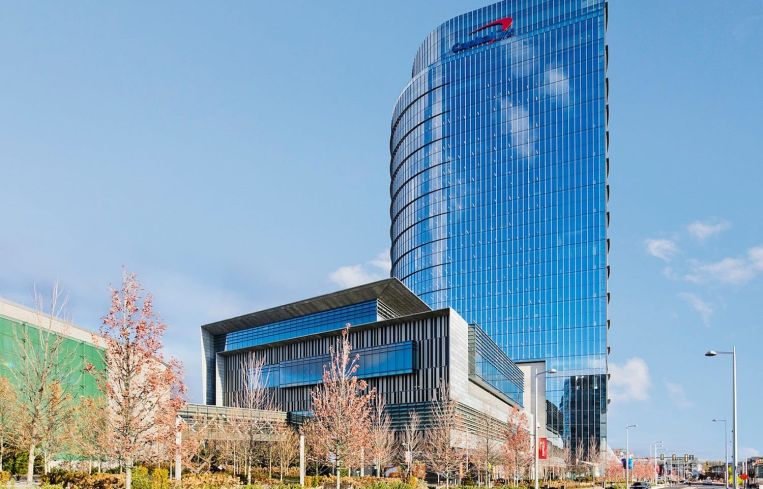Capital One Moves to Permanent Hybrid Work Model for Employees
By Keith Loria June 30, 2021 4:31 pm
reprints
Capital One Financial Corp. will allow its global workforce, some 52,000 employees, to operate in a hybrid work environment, designating two days a week as virtual workdays, according to a letter that CEO Richard Fairbank sent to workers this week.
Headquartered in McLean, Va., the company employs approximately 10,000 people in the Washington, D.C., region.
Workers will now be able to take advantage of a flexible hybrid model, which allows for a majority of Capital One employees to work part of the time in the office and part of the time virtually.
“While remote virtual work is something people have done in some jobs for decades, we collectively discovered something remarkable during this pandemic,” Fairbank wrote in the letter, reviewed by Commercial Observer. “Remote work is not a niche opportunity. It works at scale in the mainstream.”
An option to work 100 percent remotely existed before the pandemic for some workers, and Capital One expects more of its employees to choose that option, but only a small percentage of its workforce.
After Labor Day, Mondays and Fridays will be designated as enterprise-wide virtual workdays, with employees getting to choose where they want to work from, including in the office. On Tuesdays, Wednesdays and Thursdays, all Capital One offices will be fully open, and employees are encouraged to work in the office. However, the company will not require a certain number of days in-office.
“It has now been over a year since tens of thousands of associates at Capital One transformed their homes and apartments into offices,” Fairbank wrote. “Despite all that has happened, Capital One has persevered. In fact, we have thrived. We have taken care of customers, welcomed thousands of new colleagues and remained financially resilient under stress.”
Still, Fairbank did point out some of the advantages of working in the office with coworkers.
“Our offices and campuses provide unique opportunities for planned collaboration, innovation, connection, and mentorship,” he wrote. “We also benefit from unplanned interactions with people on and outside of our teams—the hallway conversation or lunch at the cafeteria. And for newer Capital One associates, being in-person allows them to be surrounded by colleagues, participate in team events, find mentors, build networks, and accelerate learning.”
Capital One’s call centers had previously announced it would be staying fully remote earlier this year.
The bank’s move is somewhat of a departure from financial firms like JP Morgan Chase and Goldman Sachs, which have taken a more conservative approach to returning to the office. However, it follows some tech firms, as well as Swiss bank USB, which announced its hybrid model earlier this week.

![Spanish-language social distancing safety sticker on a concrete footpath stating 'Espere aquí' [Wait here]](https://commercialobserver.com/wp-content/uploads/sites/3/2026/02/footprints-RF-GettyImages-1291244648-WEB.jpg?quality=80&w=355&h=285&crop=1)

